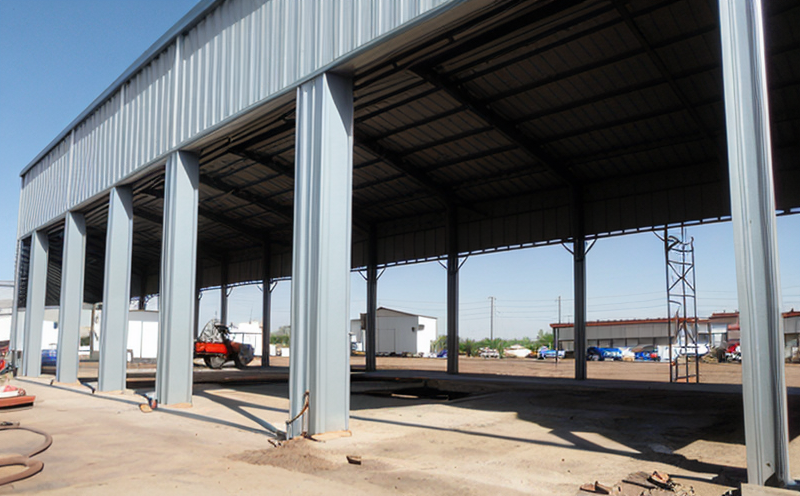EN ISO 6508 Rockwell Hardness Testing
The EN ISO 6508 Rockwell hardness testing is a widely used procedure to measure the hardness of metallic materials. This method is essential for quality assurance in the building and infrastructure sector, particularly when assessing the structural integrity of steel components.
Rockwell hardness testing involves indenter penetration into the surface of a metal specimen under specific loads. The depth of this indentation determines the hardness value based on the standard's criteria. This procedure ensures that materials meet stringent quality standards before they are used in construction projects, where durability and safety are paramount.
The Rockwell hardness scale, which ranges from 20 to 88 for steel structures, provides a reliable measure of material properties. It is particularly useful for metals like carbon steel, stainless steel, aluminum, brass, copper, and their alloys. In the context of building and infrastructure testing, this method helps in verifying that materials used meet design specifications.
One key advantage of using EN ISO 6508 Rockwell hardness testing is its ability to provide a rapid assessment of material properties without compromising accuracy. This makes it suitable for both initial quality checks during manufacturing and ongoing inspections post-installation.
The process begins with selecting the appropriate indenter (steel ball or diamond cone) based on the expected hardness range of the sample. Specimens must be prepared according to standard practices, ensuring smooth surfaces free from imperfections that could affect test results.
During testing, a preliminary load is applied to press the indenter into the surface of the specimen, followed by a secondary load that remains for a specified duration before being removed. The depth of indentation determines the hardness value according to predefined scales.
The scale used in EN ISO 6508 is HRC (Hardness Rockwell C), which applies to specimens with a Brinell hardness above 40 HBW and a tensile strength exceeding 1,270 MPa. This range covers most structural steels commonly found in building and infrastructure projects.
Testing is particularly critical for ensuring that steel components withstand the environmental conditions they will encounter during their lifecycle. For instance, high-hardness values indicate stronger resistance to wear and tear, which is crucial for long-term performance in harsh environments.
In summary, EN ISO 6508 Rockwell hardness testing plays a vital role in maintaining quality standards within the building and infrastructure sector by providing accurate assessments of steel properties. It supports compliance with international regulations while enhancing safety and reliability in construction projects.
Scope and Methodology
| Test Specimen | Indenter Selection | Load Application | Measurement Criteria |
|---|---|---|---|
| Steel, aluminum, brass, copper and their alloys | Steel ball or diamond cone indenter | Preliminary load followed by secondary load for specified duration | Depth of indentation used to calculate hardness value based on HRC scale |
The scope of EN ISO 6508 Rockwell hardness testing encompasses a wide range of metallic materials. Specimens must be prepared with smooth surfaces, free from defects that could influence test results. Indenters are chosen according to the expected hardness and material type.
The methodology involves applying a preliminary load to press the indenter into the specimen's surface, followed by a secondary load held for a set time before removal. The depth of indentation is measured using micrometers or similar instruments, which then correlate with specific hardness values on the HRC scale.
Eurolab Advantages
At Eurolab, we pride ourselves on delivering comprehensive and accurate EN ISO 6508 Rockwell hardness testing services. Our state-of-the-art facilities ensure precise measurements with minimal margin for error.
- Accurate and reliable results through calibrated equipment
- Experienced technicians trained in the latest testing techniques
- Comprehensive documentation and reporting tailored to client needs
- Timely delivery of test results, supporting swift decision-making processes
- Compliance with international standards and best practices
- Support for diverse industries including building and infrastructure
- Access to a wide range of testing services under one roof
- Dedicated support from our technical team throughout the testing process
Our commitment to excellence ensures that every test conducted meets or exceeds industry expectations. By choosing Eurolab, you can trust in consistent and high-quality results that contribute to the overall success of your projects.





